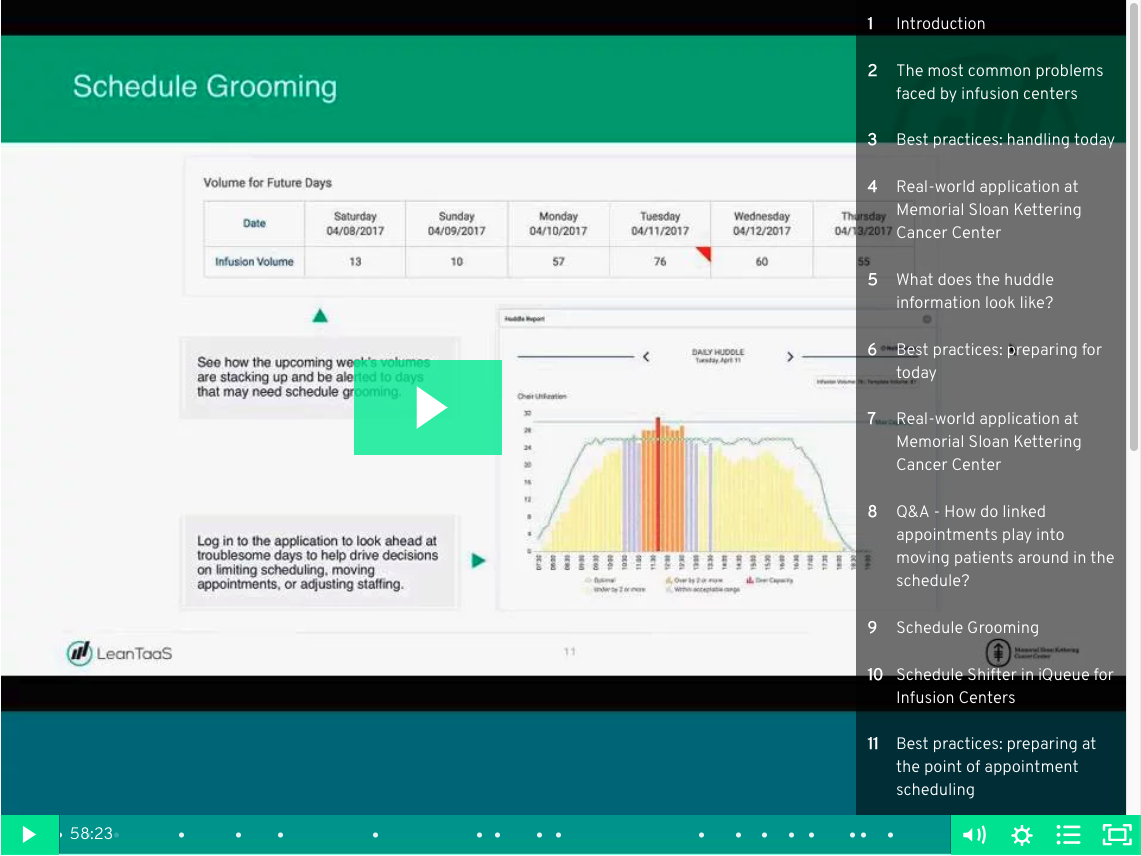Infusion centers face a daily operational paradox -- scarce resources like infusion chairs are both over-booked and underutilized on the same day. The typical "feast or famine" utilization pattern -- slow mornings, followed by a mid-day rush and slow evenings -- leads to several undesirable outcomes: long patient wait times, overworked nurses, and high operational costs.
Scheduling patients with varying treatment lengths into a fixed number of chairs is a complex mathematical problem most EHRs and spreadsheets are ill-equipped to handle. In this session, Emory Healthcare’s VP of Operations, Sheryl Bluestein, will explain how they combined lean principles, predictive analytics, and constraint-based optimization methods to predict volume and mix and "level load" treatments evenly throughout the day, resulting in a 23% reduction in wait times during peak hours.
Key Takeaways:


Founder and CEO, LeanTaaS

Vice President of Operations at Emory University Hospital Midtown